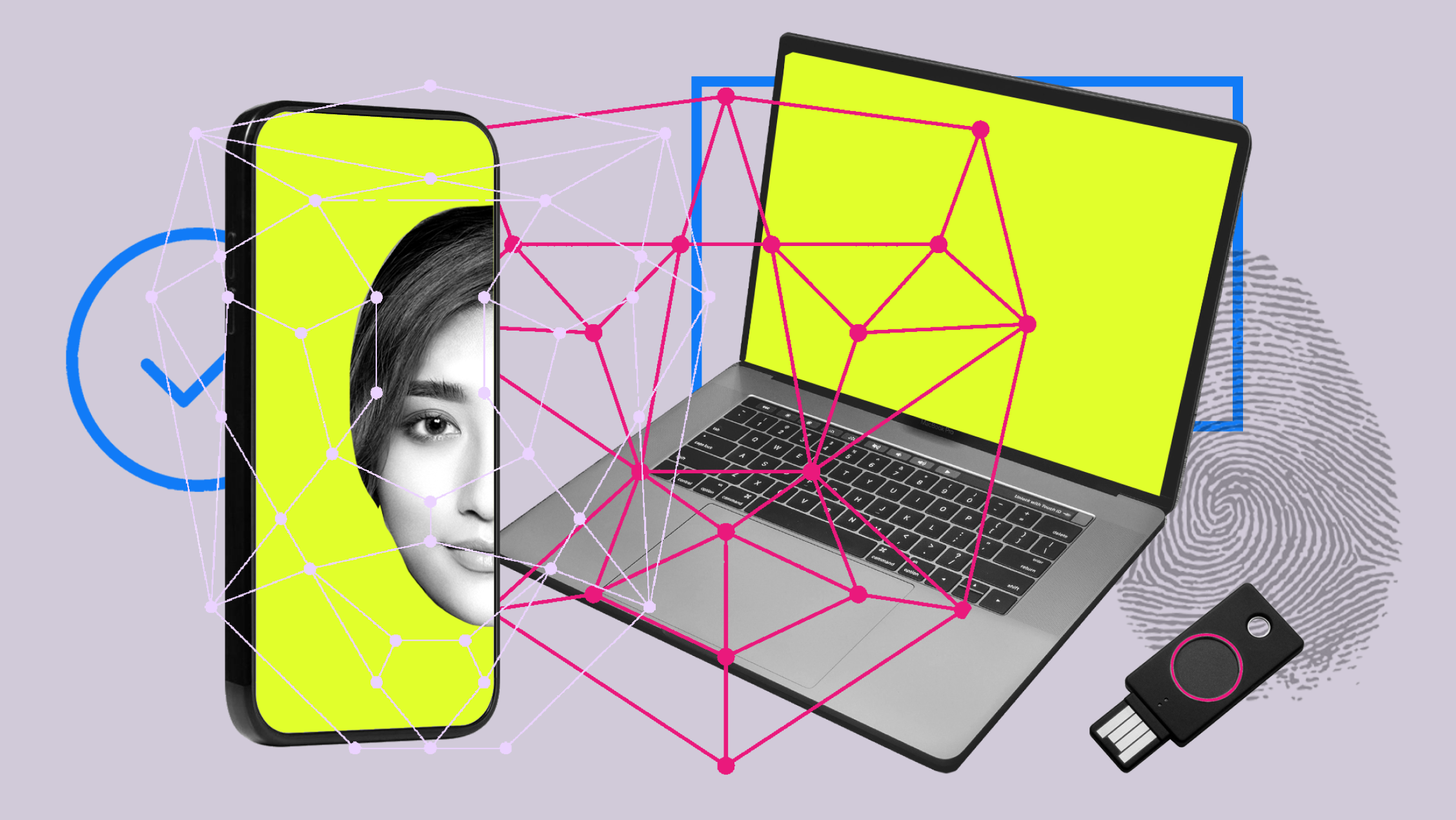The end of passwords
Companies are finally shifting away from notoriously insecure alphanumerics to other methods of authentication.

Key players
Microsoft, Google, Okta, Duo
Availability
Now
In the early 1960s, MIT professor Fernando Corbató was developing a new kind of shared computer system and wanted a way for people to be able to protect their private files. His solution was a password. Over the years, Corbató’s fix won out over other means of authentication and became the standard way we log on to pretty much everything, everywhere.
The catch? Passwords are inherently insecure. They can be stolen, guessed, or brute-forced. But mostly, people just use bad ones. (And, worse, reuse them.)
Password managers like Dashlane and 1Password can track all those various alphanumerics for you and even replace the weak ones. But password management is a half measure when it comes to security. The real action is in eliminating passwords altogether.
The process is already underway. Enterprise-oriented companies like Okta and Duo, as well as personal identity providers like Google, offer ways for people to log in to apps and services without having to enter a password. Apple’s facial recognition system has taken biometric login mainstream. Most notably, Microsoft announced in March 2021 that some of its customers could go completely passwordless, and it followed up in September by telling people to delete their passwords altogether. Those other methods of authentication? They’re finally winning.
You’ve probably experienced this for yourself. You go to log in to a site or fire up an app, and instead of being asked to enter a password you get a prompt to enter a six-digit code from your authenticator app, tap a notification on your phone, or click a link sent to your email. Or maybe you just need to raise your phone to your face. Easy peasy.
As for typing in a bunch of characters and symbols you have to recall, write down, or store in a database? Good riddance to all that.
Curious about how hackers do what they do? Check out The Extortion Economy, our five-part podcast series about the ransomware crisis.
Deep Dive
Computing
How ASML took over the chipmaking chessboard
MIT Technology Review sat down with outgoing CTO Martin van den Brink to talk about the company’s rise to dominance and the life and death of Moore’s Law.
Why it’s so hard for China’s chip industry to become self-sufficient
Chip companies from the US and China are developing new materials to reduce reliance on a Japanese monopoly. It won’t be easy.
Algorithms are everywhere
Three new books warn against turning into the person the algorithm thinks you are.
Stay connected
Get the latest updates from
MIT Technology Review
Discover special offers, top stories, upcoming events, and more.